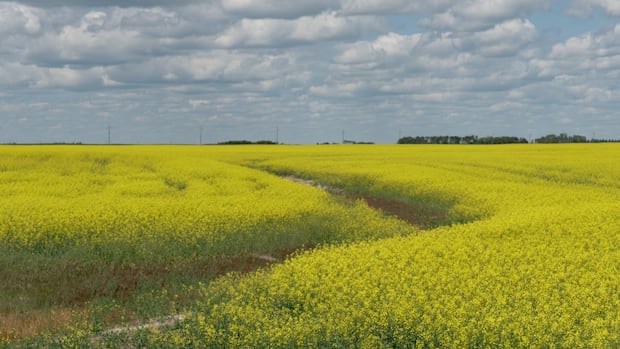With Chinese tariffs impacting Canadian canola products and affecting the cash price of this significant crop, farming experts emphasize that producers are facing crucial decisions ahead.
Market analyst Chuck Penner from LeftField Commodity Research highlighted that while future prices have slightly decreased, the cash price farmers are receiving for canola, referred to as the basis, has significantly dropped.
This decline has led to farmers losing over $140 million on their canola in the past two weeks. In comparison, losses have amounted to $800 million since March when China imposed a 100 percent tariff on canola oil and meal.
Penner mentioned that despite other market factors, the situation remains challenging for farmers, who feel they are being impacted to benefit eastern Canadian industries.
Following China’s 75.8 percent tariff on Canadian canola seed, seen as a response to Canada’s 100 percent tariff on Chinese electric vehicles, the canola industry in Canada is under pressure.
Penner added that while farmers intend to continue growing canola next year, the extent will be influenced by market conditions and their land management practices, such as crop rotations.
Canola is a key revenue source for Canadian producers but is also among the costliest crops to cultivate.
Chris Davison from the Canola Council of Canada stressed the importance of maintaining export markets and demand for Canadian canola products to sustain profitability.
Davison acknowledged that this year’s canola crop is expected to be more abundant than the previous year, which could pose challenges if China’s tariffs persist.
Alberta Premier Danielle Smith and Saskatchewan Premier Scott Moe have urged Ottawa to reconsider its 100 percent tariff on Chinese electric vehicles as part of discussions with China.
China initiated an anti-dumping probe into Canadian canola, alleging dumping practices by Canadian companies, a claim denied by Ottawa and farmers.
Ottawa has set a deadline for China to make a final decision on the duty by September, though China can extend the deadline by six months.
Despite past political tensions impacting canola trade, such as the detention of Meng Wanzhou and subsequent bans on canola imports, the current tariff issue presents a unique challenge for farmers and the industry.
The uncertainty surrounding trade relations underscores the vulnerability of farmers and industry players to political decisions beyond their control.



